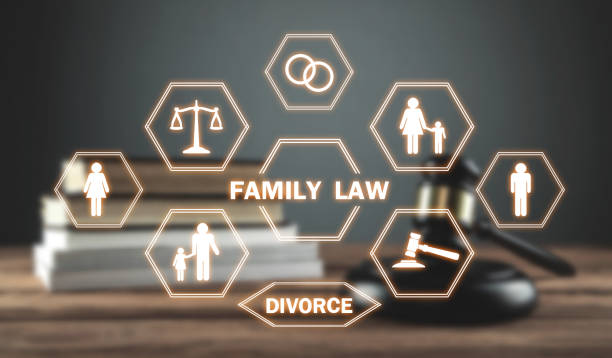
Family Law Cases
Family law cases encompass a broad spectrum of legal matters that pertain to familial relationships and domestic issues. These cases often involve sensitive and personal aspects of individuals’ lives. Common family law cases include divorce and separation, child custody and support, spousal support (alimony), adoption, domestic violence, and issues related to marital property division. Family law proceedings can be emotionally charged and complex, requiring the expertise of legal professionals specializing in this field. Family lawyers play a crucial role in guiding their clients through the legal processes, explaining rights and responsibilities, and advocating for their interests in court if necessary. They assist in negotiating settlements, drafting legal documents such as prenuptial agreements, and providing counsel on matters related to child welfare and support. The aim of family law is to address disputes and ensure fair and just resolutions while considering the best interests of the involved parties, especially when children are concerned. The role of legal professionals in family law cases extends beyond legal representation; it involves providing support, empathy, and strategic guidance to individuals navigating the complexities of family-related legal matters.
What act are covers in family law?
Family law encompasses a wide range of legal issues related to familial relationships and domestic matters. Here is a list of key areas covered in family law:
Divorce: Legal dissolution of marriage, including issues related to property division, spousal support, and child custody.
Child Custody and Visitation: Determining legal and physical custody arrangements and visitation schedules for parents after divorce or separation.
Child Support: Establishing financial support obligations from one parent to another for the care and well-being of the children.
Spousal Support (Alimony): Determining financial support from one spouse to another, either during or after the divorce.
Adoption: Legal processes for adopting a child, involving the termination of parental rights and the establishment of new legal parent-child relationships.
Paternity: Establishing legal parentage, often involving the determination of a child’s biological father.
Domestic Violence: Legal remedies for victims of domestic violence, including restraining orders and protective orders.
Marital Agreements: Drafting and enforcing prenuptial agreements (before marriage) and postnuptial agreements (during marriage).
Guardianship: Appointing a legal guardian to care for a minor or incapacitated person.
Surrogacy and Assisted Reproduction: Addressing legal issues related to surrogacy, in-vitro fertilization (IVF), and other assisted reproductive technologies.
Name Changes: Legal processes for changing one’s name, often associated with marriage, divorce, or personal preference.
Grandparents’ Rights: Legal rights of grandparents to seek visitation or custody of their grandchildren.
Juvenile Delinquency: Legal matters involving minors who have committed offenses, including court proceedings and rehabilitation.
Cohabitation Agreements: Legal agreements between unmarried couples who live together, addressing issues similar to prenuptial agreements.
Family Dispute Resolution: Alternative dispute resolution methods such as mediation or collaborative law to resolve family disputes without litigation.
Estate Planning: Legal strategies for distributing assets and providing for the welfare of family members after the individual’s death.
Termination of Parental Rights: Legal processes to sever the legal relationship between a parent and a child, often in cases of adoption or neglect.
These are just a few examples, and family law is a dynamic field that adapts to societal changes and evolving family structures. Legal professionals specializing in family law navigate these issues to ensure fair and just outcomes for individuals and families.
Woman's rights in case of divorce !
In the context of divorce, women, like men, possess certain legal rights aimed at ensuring fairness, protection, and the recognition of their contributions within the marriage. One significant right is the right to an equitable distribution of marital assets. This ensures that women are entitled to a fair share of the property, finances, and other assets accumulated during the marriage. Additionally, women have the right to seek spousal support, or alimony, if they were financially dependent on their spouse during the marriage. This support aims to assist them in maintaining a comparable standard of living post-divorce. Child custody rights are crucial for mothers, allowing them the opportunity to play an active role in their children’s lives and make decisions regarding their upbringing. In cases of domestic violence or abuse, women have the right to seek protective orders, ensuring their safety and the safety of their children. Legal professionals specializing in family law play a vital role in advocating for and protecting these rights, ensuring that women going through divorce are empowered to secure fair and just outcomes for themselves and their families.
frequency ask questions
you have a right to file a case against your husband if he refuse to gave you your right on property and other financial products.
Absolutely you will file a case against her.

